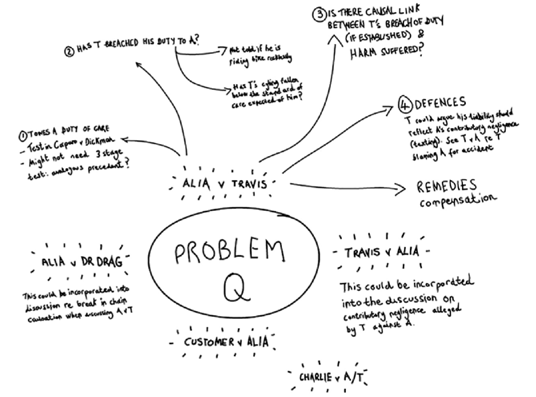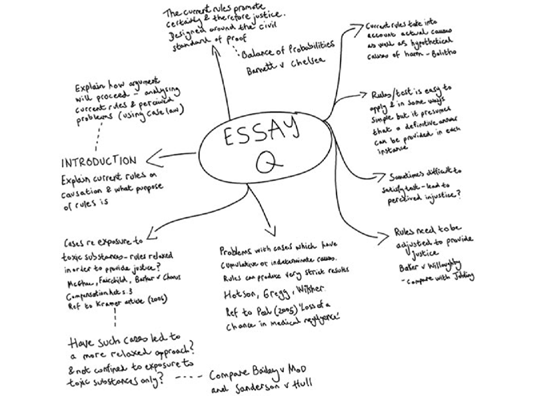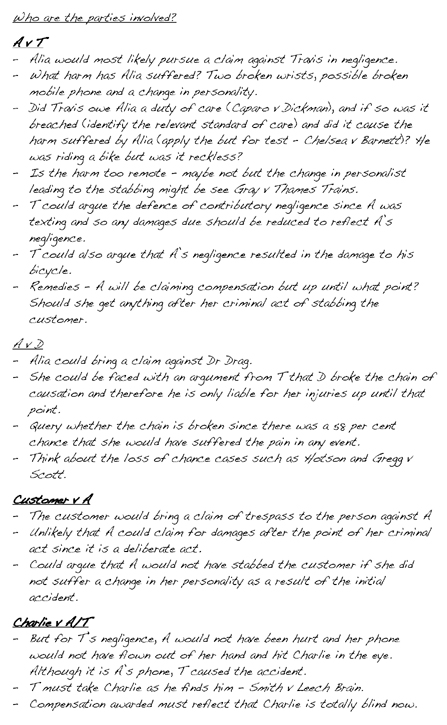Legal writing: weaning off ‘like’ and ‘innit’
Legal writing: weaning off ‘like’ and ‘innit’

5.1 Introduction: Where to begin and some Initial Advice
Student writes at 12.05 a.m.: ‘Hey what time is the lecture? C U Later Thx’
Do you often wonder whether you should write like this when you are emailing your lecturer or indeed whether you should be emailing them at this time? The short answer to this is NO!
Which of the following examples best fits your style of writing? Be honest! Which has the most impact and is capable of being answered in one email?
Ashwin, Brodie and Maisy decide to meet for coffee to discuss details of their upcoming moot. The moot clashes with their lecture, so they decide that it would be prudent to find out if there is an alternative lecture that they can attend. They all email their lecturer:
MAISY

Hey Miss, when is your other lecture? C U later.
BRODIE

Herewith, please find enclosed my humble request to attend an alternative lecture next Wednesday morning. I find your teaching to be most intriguing and enlightening but henceforth I would be grateful, if you could honour this request per se. Therefore, I will purport to attend the alternative lecture on Wednesday. I look forward to receiving your acknowledgment to this most humble request.
Sincerely yours
Brodie
ASHWIN

Dear Mrs Dua,
I am in Group A and you teach me tort law on Wednesdays. I have been selected to compete in a moot, which takes place next Wednesday so I will not be able to attend your lecture next week. Can you please advise me when and where your alternative lecture takes place?
Kind regards,
Ashwin
5.1.1 A Goldilocks problem
Think about which email has the most impact and is capable of being clearly understood. (See Table 5.1, pp. 88–89.)
All opportunities for writing, including essays, emails and sometimes even writing text messages, form part of the process of you developing your writing skills. Subconsciously, you should adjust your writing style according to the context in which you are writing. Writing emails is the form of writing to which most of us can relate. It may not surprise you to note that writing emails forms a huge part of working in a professional environment (see Chapter 8 for advice about employability). You will therefore be expected to articulate yourself and write to a good standard in almost any profession. Getting into good habits now will really help you in being able to ask efficiently for the right information and to convey the right information. We are not suggesting you eat a thesaurus for breakfast and write in an unintelligible manner, but remember, you want people to take you seriously and you want to have your voice heard. When undertaking any legal writing, you need to ensure that the reader can understand your ideas but also that the reader can be persuaded and convinced by what you have written. Starting any sentence then, with the words ‘Hey’ and abbreviating words that are not naturally abbreviated indicate the following about the writer:
• They are lazy as they cannot be bothered to spell.
• They would rather attempt to look cool than be understood and taken seriously.
• They are unable to distinguish between a formal and informal environment.
• They do not think through what they want to say.
Maisy Hey Miss, when Is your other lecture? C U Itr. | This is just too relaxed and Informal. This email does not tell us to what lecture or subject Maisy is referring and overall is far too informal. Would you write like this to your manager or boss? Always address the person to whom you are writing by name. You may use their first name if they are known to you or you could, and perhaps should, address them formally by using their title and surname. Remember, emailing is different to texting. Lecturers and teachers spend an inordinate amount of time teaching you to write well, if you then use abbreviations such as C U ltr, this is rather disheartening but also suggests that you do not take your learning seriously. Also always sign off with your name. |
Brodie Herewith, please find enclosed my humble request to attend an alternative lecture next Wednesday morning. I find your teaching to be most intriguing and enlightening but henceforth I would be grateful, if you could honour this request per se. Therefore, I will purport to attend the alternative lecture on Wednesday. I look forward to receiving your acknowledgment to this most humble request. Sincerely yours, | By contrast, this email goes too far the other way and is too formal. It is convoluted and detracts from what Brodie is seeking. Again, he does not tell us to what lecture or subject he is referring. What ends up happening is that when one gets a chance to respond to the email, it will have to be asked what subject and lecture he is referring to and wait for his response before finally answering the initial query. This causes someone in Brodie’s position delays and he might not get a response in time to attend the alternative lecture. Remember, lecturers will not be able to respond to emails when they are teaching, and there may be many others to deal with that arrived first. |
Ashwin Dear Mrs Dua, I am in Group A and you teach me tort law on Wednesdays. I have been selected to compete in a moot, which takes place next Wednesday so I will not be able to attend your lecture next week. Can you please advise me when and where your alternative lecture takes place? Kind regards, | This appears to be just right. It is the most well thought out email. It makes clear what subject and lecture are concerned and Ashwin also states what group he is in so he can be told whether there are any clashes in the timetable if he were to attend a different Tort law lecture. He addresses the lecturer appropriately and with the right level of formality. One can answer his email in one go without sending an email requesting clarity or further information. |
Note, however, we are not saying that have to change your writing habits in every medium; updating your Facebook status and texting your friends probably does not call for such precise language. However, we are saying get into good habits and think about why we listen to what certain people have to say with respect. So the first point to take away from this chapter is (1) to think about who you are writing to; and (2) what you are writing. Is it clear, or do you think that the reader will have to ask for more information from you, before they can actually respond to your original text?
ACTIVITY
Write how you would/should speak. Read out the following, which you might say out loud and ask yourself whether you would be comfortable in writing the same thing, or whether you would change it. After all, what you write and say should be of the same quality.
You know that case where the lady used the smokeball to get rid of her flu. That case is so old that we can’t use it now.
How might you write about this case and discuss whether it is still relevant?
5.2 THE FIRST CHALLENGE: PREPARE AND PLAN
So now you have had a basic lesson in the importance of writing well and getting into the right mindset. Next we focus on the preparation and planning aspect of your writing.
What is the purpose of planning your writing? Do you think it is sensible to just start writing an essay without thinking about it? When you are about to write anything, whether it is a text, email or an essay you think carefully about what you are about to write; this is even more vital when undertaking legal writing. Do not underestimate the importance of planning.
Some people can think through what they want to write without writing a formal plan while others, like us, need to have a written plan that helps to organise ideas and issues. Whichever style suits you, you should never misjudge the importance of undertaking this step when you are about to write. Think back to when you have written an email or a text message that you wrote without giving too much thought to: when you think about it, don’t you wish you had spent a little time on planning what you wrote?
How on earth do you actually plan to write an essay though? Fear not, and prepare to be dazzled by what follows. The secret to planning an essay is that you can plan it in any way that makes sense to you as long as you follow these tips:
1 Pinpoint the key areas of interest within the essay title.
2 Research the relevant issues (see Chapter 4 for advice on conducting legal research).
3 Logically organise your material and ideas – what order do you think the issues should be set out in?
4 Keep related issues together.
5 Use chronology when presenting facts.
5.2.1 Popular approaches to planning
Here are some popular approaches to planning, be sure to analyse each one to find your style.
(i) Mind maps or spider diagrams – both are similar
Who should ideally use this approach → Do you have a lot of thoughts floating around and cannot seem to get them down on paper? Then these are for you! They are a great way of transferring your thoughts from your mind onto paper.
– These are visual aids and look a lot like a drawing of a spider.
– You have a central body in which you note your main idea or topic and then drawn lots legs or branches from that central body to which you add your ideas or thoughts.
– The great thing about these diagrams is that you do not need to note your ideas down in any particular order, you can add a branch as a thought or idea comes to you.
– Once you have noted all of your ideas, you can then start connecting them and putting them together in a coherent order to make sure that they produce a study idea a bit like a spider’s web.
– These are effectively a step up from your scribbled down notes on a bit of paper.
– You can often find really useful mind map or spider diagram programmes online if you prefer them to drawing one by hand, although our preference is to draw them by hand because it retains flexibility and freedom in the creative process of thinking about your ideas.
– You can also elevate this basic idea by adding sub-level ideas and numbering them so that they can form your subheadings in your essays or you can use a different colour for a different set of branches to indicate that that group of branches belongs to a particular idea.
– The key to these diagrams is that they are a great way of getting your ideas out of your head and onto paper in a way that makes sense to you.
(ii) Lists
Who should ideally use this approach → Students who do not have a problem getting ideas down on paper but would like to think about how their essay will look and organise their ideas.
– Lists often serve as subheadings or main ideas that the writer would like to develop.
– Lists can also start from flow diagrams, which are then developed into paragraphs.
– This technique is an advanced technique as those who use this feel that they are able to think through their ideas and the order of their ideas as they write their list.
– The list often serves as a prompt to allow you to refer back to your ideas so that you do not lose your train of thought.
Who should ideally use this approach → The super-confident student, who has enough confidence to write their essay while thinking on their feet, and does not think that they will forget their ideas or how to link them up without a written prompt. Note, we have not come across many students who can do this, so it is probably best avoided.
– This is an excellent position to be in if you can do it. Sadly though, most of us need some kind of memory prompt to remind us of our train of thought.
– This is the most advanced style of planning as you plan as you go, which also makes it the most risky. If you go down the wrong path with an idea, you might find it difficult to change your course of direction. When you write something that you do not plan it can be read out of context and/or require further explanation for clarity.
– A major advantage of this style is that you will become accustomed to thinking on your feet fairly quickly.
Let’s see what these look like in practice.
Ashwin, Brodie, Maisy and Sienna have the opportunity to submit a piece of coursework for their Tort Law module and they want to seize the opportunity in order to receive valuable feedback on their written work. They have a choice of two questions that they can answer.
5.2.2 Problem question
Alia is reading a text message while she is crossing the road, when she hears a loud screeching noise before being knocked down by a bicycle ridden by Travis. Upon impact, Alia’s phone flies out of her hand and hits Charlie in his left eye and Alia falls so badly that she suffers from two broken wrists.
Advise Alia as to the following:
(a) Charlie has always suffered from a rare eye condition in his left eye, which means that he has to avoid any significant impact to this eye. Unfortunately, when the phone hit Charlie in the eye, this led to Charlie becoming totally blind in his left eye.
(b) Alia is seen in hospital by Dr Dragg. Unfortunately, Dr Dragg incorrectly treats the injury to Alia’s wrists. Alia suffers from a great deal of pain in her wrists and so goes back to the hospital five days later where she is correctly treated by another doctor. Alia now suffers from pain in her wrists. Had Alia been treated correctly when she was seen by Dr Dragg, there was a 42 per cent chance that she would not have suffered from pain in her wrists.
(c) Alia is left with depression after the accident and has become increasingly aggressive. One day a customer asks Alia for some assistance in the shop where Alia is working and Alia refuses to help the customer. The customer tells Alia that if she does not like her job, she should have worked harder at school. Alia is so incensed by this that she takes a pair of scissors and stabs the customer. Alia is now serving a jail term for the incident.
(d) Travis’ bicycle is broken beyond repair, and Travis blames Alia entirely for the accident.
OR
5.2.3 Essay question
The rules on the law of causation are too strict and justice demands a more relaxed approach.
Critically analyse this statement.
5.2.4 Example answer plans
(i) Mind maps
Ashwin prefers to use mind maps with sub-levels and colours.
He would like more practice in how to answer problem questions and so decides to plan how to answer the problem question (see Figure 5.1).
Brodie prefers to use a simple mind map to plan his answer to the essay question (see Figure 5.2).
(ii) Lists
Sienna prefers to prepare lists of things that she thinks she has to go through to answer the problem question (see Figure 5.3).
(iii) Writing from the off
Maisy prefers to just think through things in her mind to answer the essay question. Maisy ponders the question and thinks that she can discuss the current case law and what the problems are with the current test to identify where the rules are too strict and should be more relaxed. While this approach might be good for some and more suitable in essay questions, we would caution against this approach when planning your answer to problem questions. Let us explain why.

Figure 5.2 Example of a plan for a problem question using a mind map
The second option that students often take is to suddenly write in a couple of sentences admitting that who they thought was the offeror must now in fact be the offeree and so they are going to continue their discussion on that basis. Again, it becomes apparent that there was a lack of a plan. Both approaches are inefficient and demonstrate poor planning, not to mention that it reveals to the examiner they are not particularly good at applying the law!
5.3 THE SECOND CHALLENGE: PREPARING TO WRITE
Now that you have your plan set out, you should feel organised and raring to go with your writing. Take a tea break and come back all set to go without any distractions and oh, of course, do not forget to turn your phone to silent!
5.3.1 To whom are you writing?
Always consider who you are writing to; if you are writing to your brother you can, of course be relaxed and informal but if you are writing to the programme director of the LLB or your personal tutor you need to be reasonably formal and professional. Likewise, when writing an essay, remember that the person you are writing to is your lecturer and they will be assessing your written work. They will expect you to put into practice the skills they have been teaching you. Your lecturers use essays in order to assess your level of understanding of a given issue. If you do not write clearly and logically, you are making the task of the lecturer that much more difficult.




